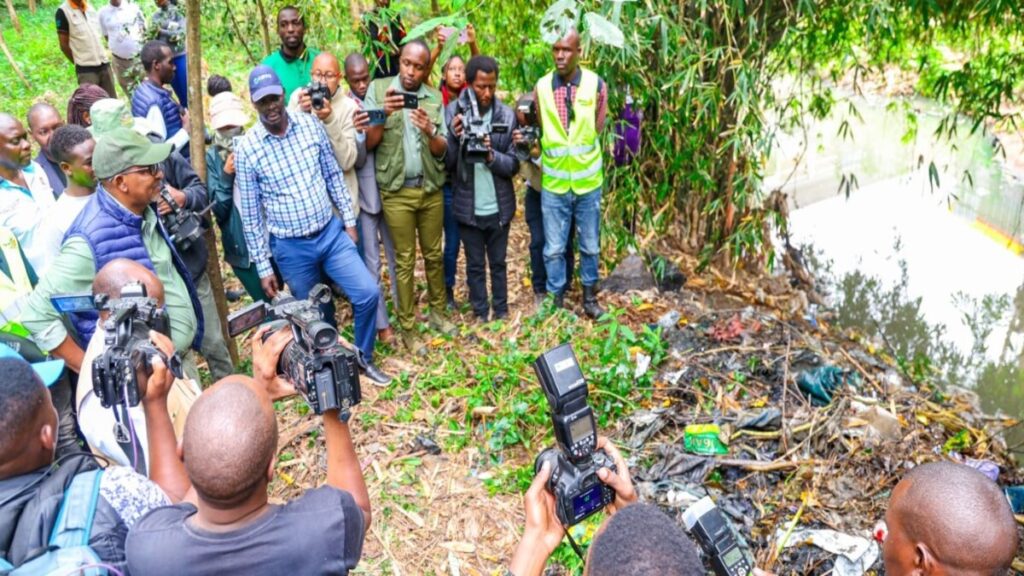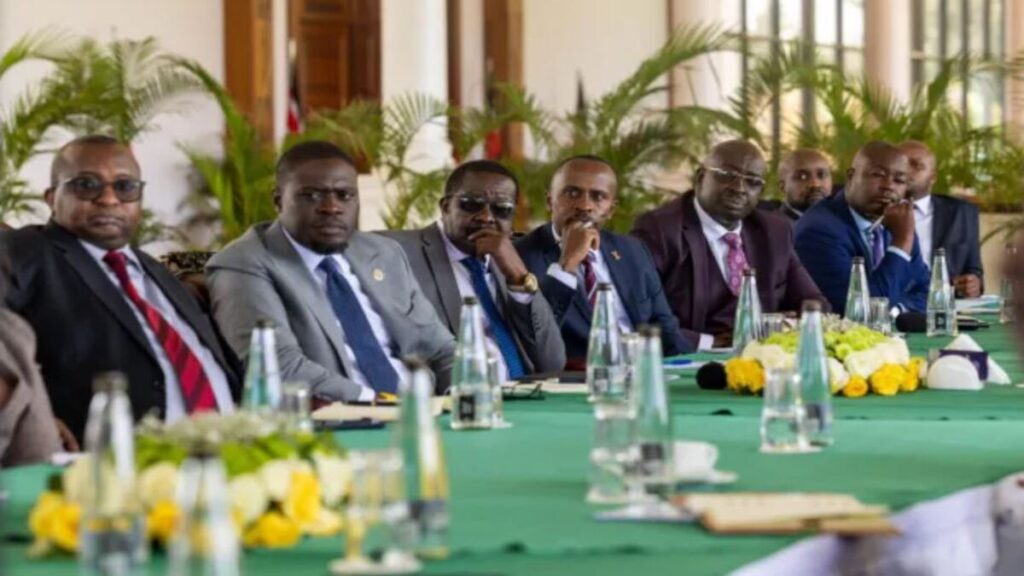County lawmakers are raising alarm over the deteriorating state of Nairobi’s rivers. This comes nearly two years after the establishment of the Nairobi Rivers Commission.
The commission, despite receiving significant funding, has made little progress in cleaning up the waterways. Local representatives now demand answers about the slow pace of rehabilitation.

Environment CS Aden Duale, on October 10, 2024, inspects a section of the
Nairobi River that passes through the Nairobi Arboretum. (Photo: Ministry of Environment)
Waithera Chege, the Deputy Minority Leader and South B Ward Representative, has voiced strong concerns. She questions City Hall’s role in managing the rivers.
“Nairobi has become uninhabitable,” Chege stated during a recent assembly session. She criticised city leaders for potentially misleading President William Ruto about the rivers’ condition.
The situation has caught the attention of Kenya’s top leadership. President Ruto recently hosted Nairobi MPs at State House to address the mounting concerns.
During the meeting, the President urged lawmakers to set aside their political differences. He emphasised the importance of working together to transform the city’s waterways.

President Ruto meets Nairobi Lawmakers, Nairobi River Commision at State House Nairobi
The Nairobi Rivers Commission was established in December 2022. It emerged from a partnership between the national government and Nairobi County.
Recent developments show attempts to breathe new life into the project. President Ruto appointed former Starehe MP Margaret Wanjiru as the commission’s chairperson.
The commission’s initial plans were ambitious. They included employing approximately 12,000 young people and women for cleanup activities.
These workers were meant to participate in riverside cleanup operations. They would also engage in tree-planting initiatives along the water bodies.
A fresh cleanup drive launched on Mazingira Day in October 2023. Officials promised to complete these efforts within 18 months.
However, local Members of the County Assembly (MCAs) remain unconvinced. They question the effective use of allocated resources.
The lawmakers are particularly concerned about coordination issues. They point to possible gaps between City Hall and the commission’s operations.
Environmental experts describe the current state of Nairobi’s rivers as critical. Many compare the waterways to open sewers due to severe pollution.
The pollution affects both environmental and public health. Residents living near these rivers face increased health risks.
Local authorities now demand greater transparency. They want clear information about how the commission uses its funds.
Questions also arise about the collaboration between different government entities. The MCAs seek clarity on roles between City Hall and the commission.
The situation reflects broader environmental challenges in Nairobi. It highlights the need for effective urban environmental management.
Successful river rehabilitation requires coordinated efforts. All stakeholders must work together to achieve meaningful progress.
The commission faces mounting pressure to show results. Local leaders expect visible improvements in water quality and riverside conditions.
President Ruto’s administration has made environmental cleanup a priority. However, the gap between promises and actual progress remains significant.
The cleanup initiative connects to larger urban development goals. Clean rivers could transform Nairobi’s landscape and improve living conditions.
Regular citizens also play a crucial role in the cleanup efforts. Community involvement remains essential for sustainable river management.
Looking ahead, the commission must address these concerns promptly. They need to demonstrate effective use of resources and clear progress.
The success of this initiative could set a precedent. It might influence future environmental projects in other Kenyan cities.
Environmental experts recommend stricter pollution control measures. They suggest better waste management systems along the rivers.
The situation calls for immediate action from all parties involved. Delayed progress could lead to further environmental degradation.
As Nairobi continues to grow, river rehabilitation becomes more crucial. Clean waterways are essential for a sustainable urban environment.
The coming months will prove critical for the commission. They must show tangible results to maintain public and political support.
Local leaders continue to monitor the situation closely. They promise to hold relevant authorities accountable for the cleanup’s progress.
















